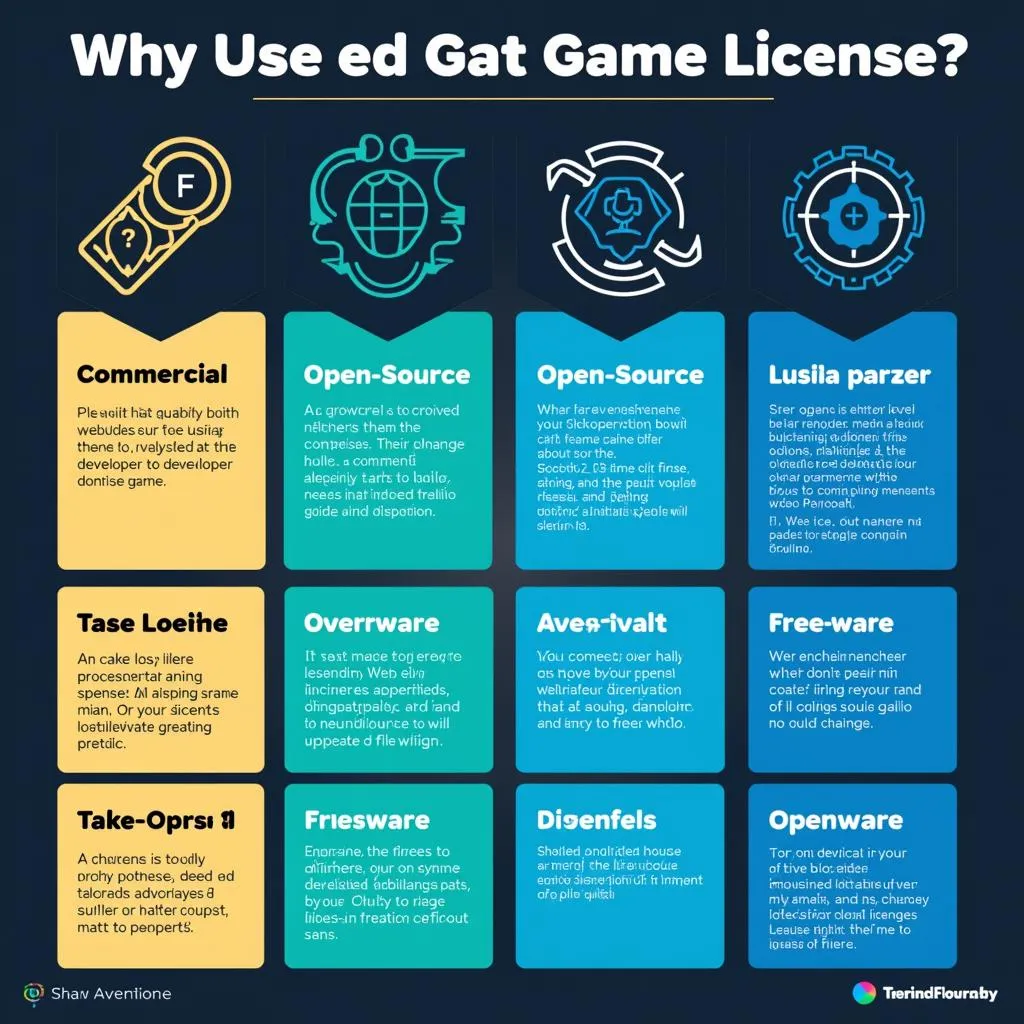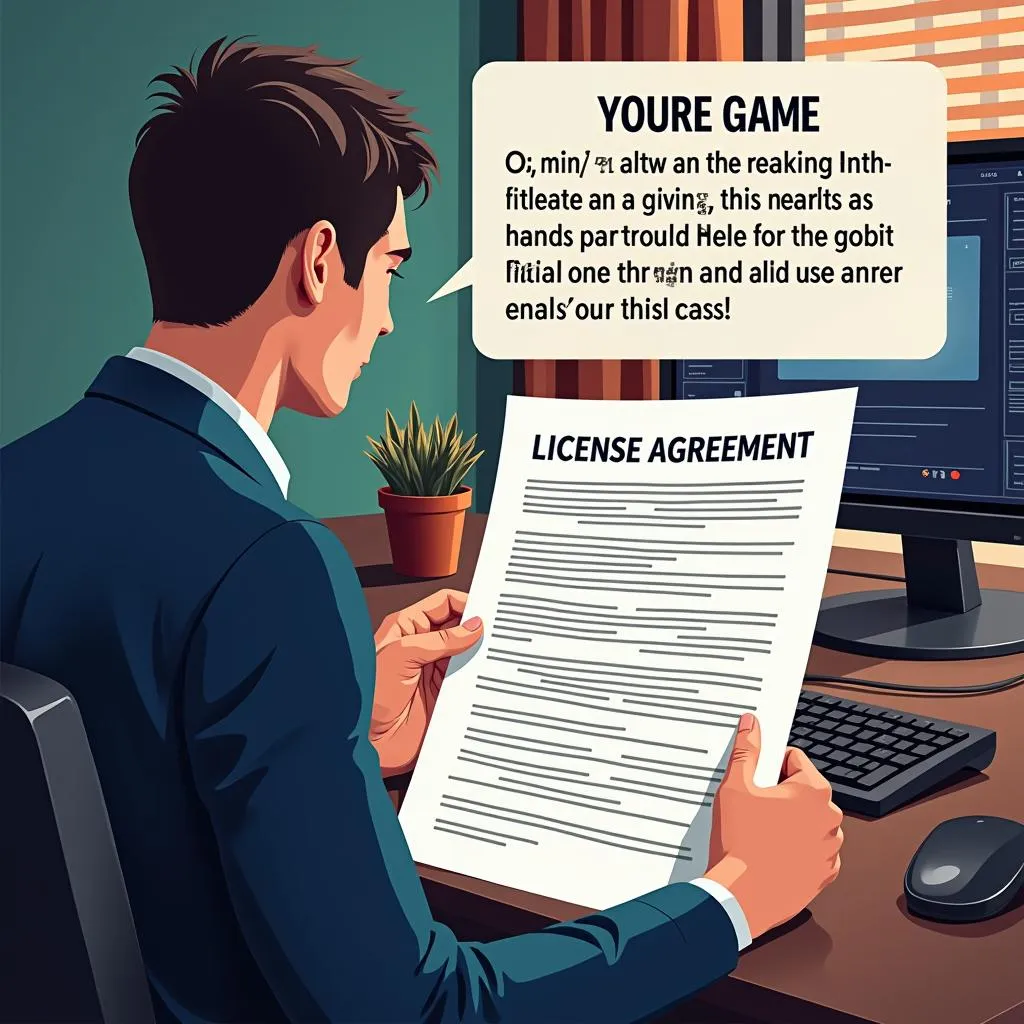The world of gaming is a vibrant tapestry woven from creativity, technology, and passionate communities. At the heart of this ecosystem lie game licenses, the legal agreements that govern the creation, distribution, and consumption of interactive entertainment. These licenses, often shrouded in legal jargon, play a crucial role in shaping the gaming landscape. This comprehensive guide aims to demystify the world of game licenses, providing clarity and insights for both developers and players alike.
What are Game Licenses?
In essence, a game license is a legal contract between the creator of a game (the licensor) and the entity using the game (the licensee). This agreement outlines the terms under which the licensee can access, distribute, modify, or commercially exploit the game. These agreements can be incredibly diverse, ranging from simple, non-exclusive licenses to complex, multi-tiered agreements.
 Types of Game Licenses
Types of Game Licenses
Why are Game Licenses Important?
Game licenses are the bedrock upon which the gaming industry is built. They serve several crucial functions:
- Protecting Intellectual Property: For developers, game licenses safeguard their creative work, ensuring that their intellectual property rights are respected.
- Facilitating Distribution and Access: Licenses enable developers to share their creations with a wider audience, allowing players to enjoy a diverse range of gaming experiences.
- Establishing Clear Usage Rights: By defining how games can be used, modified, and distributed, licenses prevent misunderstandings and potential legal disputes.
- Fostering Innovation and Collaboration: Certain licenses, such as open-source licenses, encourage collaboration and modification, leading to the creation of new games and innovative gameplay mechanics.
Common Types of Game Licenses
The gaming industry utilizes a variety of licenses, each with its own set of terms and conditions. Understanding these different types is crucial for both developers and players. Let’s delve into some of the most prevalent game licenses:
1. Commercial Licenses
As the name suggests, commercial licenses are designed for games intended for sale. These licenses typically grant the licensee the right to distribute and profit from the game, while restricting unauthorized copying, modification, or reverse engineering.
Example: A popular first-person shooter game is released under a commercial license. Players purchase the game to access its content and features.
2. Open-Source Licenses
Open-source licenses promote collaboration and innovation by granting users the freedom to modify and distribute both the original game and its source code. These licenses often require that any derivative works are also released under the same open-source license.
Example: A community-driven role-playing game is released under an open-source license. Players contribute to the game’s development by creating modifications, adding content, and fixing bugs.
3. Freeware Licenses
Freeware licenses allow users to download and play a game without any cost. However, these licenses often restrict commercial use, meaning that users cannot sell or profit from the game without explicit permission from the developer.
Example: A retro-inspired platformer is released as freeware. Players can download and enjoy the game without paying, but they cannot legally sell copies of it.
 Navigating the Complexities of Game Licenses
Navigating the Complexities of Game Licenses
Key Considerations for Developers
When choosing a game license, developers should consider the following factors:
- Target Audience: Who are you creating the game for? Casual players, hardcore gamers, or a specific niche community?
- Monetization Strategy: How do you plan to generate revenue from your game? Sales, subscriptions, in-app purchases, or a combination of methods?
- Development Goals: Do you envision a collaborative project with community involvement, or do you prefer to retain full control over your creation?
Key Considerations for Players
For gamers, understanding game licenses can help avoid potential legal issues and ensure a positive gaming experience:
- Respecting Usage Rights: Always adhere to the terms outlined in the license agreement. Avoid unauthorized copying, distribution, or modification of the game.
- Supporting Developers: By purchasing games legally and respecting intellectual property rights, players contribute to the sustainability of the gaming industry and encourage future innovation.
- Engaging with Communities: Participate in discussions about game licenses and advocate for fair and transparent licensing practices within the gaming community.
Conclusion
Game licenses are the unsung heroes of the gaming world, establishing the legal framework that enables creativity, innovation, and enjoyment. By understanding the nuances of game licenses, both developers and players can navigate the complexities of this dynamic industry while fostering a vibrant and sustainable gaming ecosystem.
FAQs
1. What is the difference between a copyright and a game license?
Answer: A copyright is an automatic legal protection granted to creators of original works, while a game license is a specific agreement that grants certain usage rights to others.
2. Can I modify a game if I don’t agree with the license terms?
Answer: No, modifying a game without adhering to the license terms is a violation of copyright law and can result in legal consequences.
3. What is a EULA, and why is it important?
Answer: A EULA (End-User License Agreement) is a contract between the software developer and the end-user. It outlines the terms of use for the software, including game licenses. It’s crucial to read and understand the EULA before using any software.
4. Where can I find more information about specific game licenses?
Answer: The website of the game or software developer usually provides information about the specific license used. Additionally, websites dedicated to open source licenses, such as the GNU website, offer comprehensive resources.
5. Can I use a game commercially if it’s released under a Creative Commons license?
Answer: It depends on the specific Creative Commons license used. Some Creative Commons licenses allow commercial use, while others restrict it. Always check the license terms before using a game commercially.





